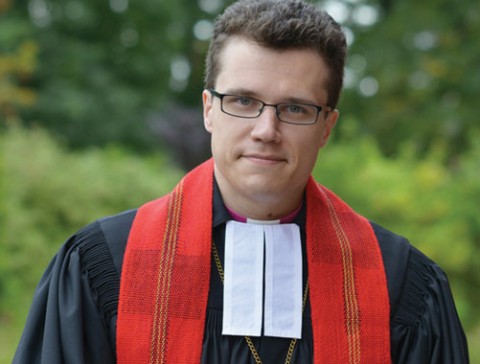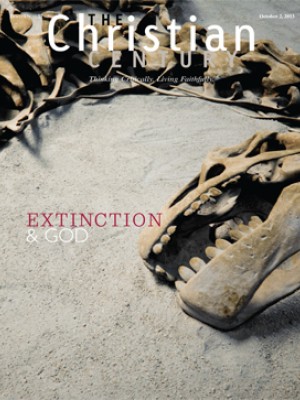Russian & Lutheran: An interview with Dietrich Brauer

Read John Burgess's article on Lutherans and Methodists in Russia.
Dietrich Brauer, archbishop of the Evangelical Lutheran Church of Russia, was born in Vladivostok, the child of Russian-German parents. He grew up in Moscow and attended Novosaratovka Theological Seminary. Besides serving as archbishop, he is pastor of the Peter and Paul Cathedral in Moscow.
Was your family religious?
My family was essentially agnostic. In the Russian-German context, my family’s relationship to religion was complicated. It was not possible to find a Lutheran community in the big city, and Orthodoxy was not particularly attractive. In our circle of friends, there were plenty of people for whom individual faith was significant, but community life was limited or absolutely impossible. I remember that as a child, I was impressed by the personal faith of the people around me.
Read our latest issue or browse back issues.
How did you become attracted to the faith?
The rich heritage of Lutherans in Russia and the connection of our family with it, the testimony of faith from particular people, the study of the Bible and religious texts of the Lutheran church and the music of Bach—God used all of these to invite me to himself.
How would you describe Lutheranism in Russia?
The Lutheran Church in Russia is an ethnic church, but it is not a monoethnic church. Believers come from a variety of German areas and Finnish territories. There are Swedes, Dutch, Latvians, Estonians, Swiss, French and others. After the fall of communism, more than two million Russian-Germans returned to Germany. That in itself changed the character of Lutheran churches. Today Lutheran churches are no longer mostly ethnic churches, but are churches for all people.
What is your vision for the church now?
Lutheran churches in Russia have a big opportunity to be a church not of priests and charismatic leaders who know all the answers in advance, but of a living people, seeing God and his righteousness amidst all the unrighteous kingdoms; to be a church that is not looking backward, but is living here and now, with the perspective of eternity; to be a church that is not afraid to admit mistakes, but that has the courage to say what it thinks and show love to its neighbors.
Lutheran churches in Russia are never going to be large in membership. They will not fill massive stadiums. It isn’t likely that Lutheranism will become a quasi-governmental confession. But I hope that we will grow steadily and become a spiritual home for many people who may discover and receive the gifts of a community life, found in following Christ.
What are some of your goals?
We hope to consolidate churches and strengthen our unity as one church of Christ, as inseparable parts of an ecumenical movement. We are working on developing a democratic structure that comes from the community as a whole, because we are a “priesthood of all believers.” And we want to develop our profile as a Russian Lutheran church, incorporating more of the specificity of our rich Russian heritage.
What are ecumenical relations like in Russia?
We are fruitfully cooperating with other traditional Protestants. In the coming years, we are preparing for the celebration of the Jubilee of the Reformation in 2017. We are planning a complete round of projects with Baptists, Presbyterians, Methodists and Reformed congregations. Some of the planned activities are a theological conference on the theme of the Reformation in 2014, a Youth Church day in 2015, the publication of a Jubilee commemorative book about Protestantism in Russia and a relay through the country celebrating the Jubilee in different regions.






